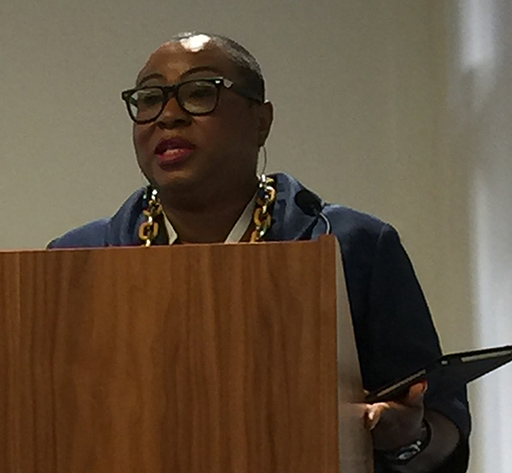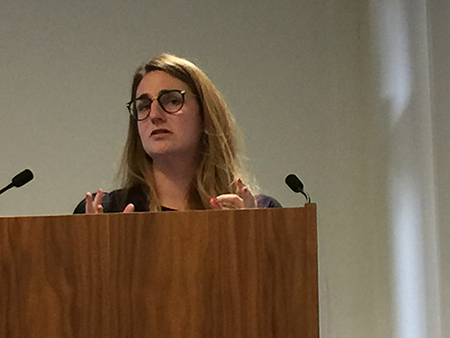Pharmacy needs 'inclusive' leadership to improve education experience
In News
Follow this topic
Bookmark
Record learning outcomes
Managers, lecturers and supervisors in the pharmacy profession must become €inclusive leaders€, a professor of diversity told delegates at a General Pharmaceutical Council seminar held to discuss ways to improve examination results for Black-African pharmacy students.

€Set the tone for inclusion€ and €de-bias organisational practices€ to champion diversity, challenged Udy Archibong, MBE, professor of diversity at University of Bradford (pictured). €Inclusion must be embraced enthusiastically rather than approached as something you have to do,€ she said.
Members of the profession met to discuss action to take following research, based on the observations of a group of MPharm graduates, was commissioned after GPhC found that the registration examination pass rate for Black-African candidates in 2015 was 34 per cent lower than for White-British candidates.
Pharmacy education now has to be €rethought€ to achieve €equal academic performance for all€, Professor Archibong told delegates. Research suggests that issues for some Black-African students could include lower levels of academic preparedness; cultural bias among lecturers and communication barriers, with family commitments of mature students leaving less time and finances for study. Institutions should work to engage students to create €a positive sense of belonging€, with equally high expectations for all students, she said.
Problems with their pre-registration training placements was identified in particular by some students, said Dr Helen Brown, of the Office for Public Management (OPM), which carried out the qualitative research on behalf of GPhC.
€Many Black-African trainee pharmacists are highly motivated, do not experience the disadvantaging factors we identified, and are very successful in their education and training. But some find it more difficult,€ said Dr Brown.
Improving pre-registration training placements, training for trainers and trainees and protected study time for students should be considered, she suggested. The study found a wide range of factors that could be involved.
The medical profession's regulator, the General Medical Council, has developed processes over a number of years to ensure that training pathways for doctors are €fair€ said Kirsty White, an assistant director at the GMC.

Similar differences in attainment were found between Black-African and white medical students across the UK, and in different countries, although no particular patterns are seen that could be used to solve the problem. €There's no single solution. It is complex and we shouldn't shy away from that,€ she said. No evidence was found for examiner bias.
In work with GP trainees, the €single most important factor€ was found to be their relationship with their supervisor €“ €who can inspire and engage€, said Ms White. Individualised training plans for students and more support for supervisors are effective measures that pharmacy could adopt, she suggested.
Nigel Clarke, GPhC chair, said that the seminar, held on 10 October in London, marked the beginning of important work on the topic.
